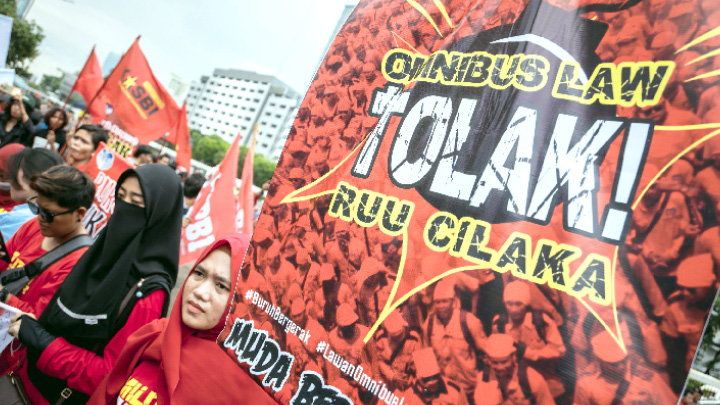The Omnibus Law Draws Criticism
Wednesday, January 15, 2020
arsip tempo : 171348167165.

LUCIUS Karus, a researcher from the Forum of Society Concerned for the Indonesian Parliament, considers that the writing of the academic paper and draft of the Omnibus Law has not been transparent. “The process was done in a rather closed manner. It is not clear what interest this served,” said Lucius on Friday, January 17.
According to Lucius, the government and the DPR should have opened the room for public participation so th
...
Subscribe to continue reading.
We craft news with stories.
 For the benefits of subscribing to Digital Tempo, See More
For the benefits of subscribing to Digital Tempo, See More









